Hot water systems are the unsung heroes of our daily routines, quietly delivering warm water for bathing, cooking, and cleaning. We often take them for granted until they show signs of failure unexpectedly. As homeowners, it is crucial to understand the lifespan of these systems and the factors that can impact their longevity. In this blog, we will delve into the fascinating world of hot water systems, exploring how long they typically last and the various factors influencing their lifespan. Additionally, we will provide you with practical maintenance tips to help you extend the longevity of your system, ensuring a reliable hot water supply for years to come.
I. Understanding the Lifespan of Hot Water Systems
Hot water systems are an essential component of our homes, providing us with warm water for various daily activities. To make informed decisions about maintenance, repairs, or replacements, it is important to understand the typical lifespan of different types of hot water systems and the factors that influence their longevity.
Average Lifespan of Different Types of Hot Water Systems
- Conventional Storage Tank Systems: Conventional storage tank systems are the most common type of hot water system found in residential properties. They consist of a large tank that stores heated water until needed. These systems typically have an average lifespan of about 10 to 15 years, although some may last up to 20 years with proper care. The lifespan of a storage tank system is influenced by several factors. One crucial aspect is the quality of the tank itself. Tanks made of high-quality materials, such as stainless steel or durable glass-lined tanks, tend to have a longer lifespan than those made of lesser-quality materials. Additionally, the thickness of the tank’s insulation can affect its efficiency and overall durability. Another factor is the heating element. Electric storage tank systems have heating elements that may wear out over time due to constant heating and cooling cycles. Gas-powered storage tank systems, on the other hand, have a burner or heating element that can also deteriorate over time.
- Tankless Water Heaters: Unlike storage tank systems, tankless water heaters heat water directly as it flows through the unit, eliminating the need for a storage tank. On average, tankless water heaters have a longer lifespan than conventional storage tank systems, ranging from 15 to 20 years. This extended lifespan is partly due to their design, as they do not suffer from issues such as tank corrosion or sediment buildup that can affect storage tank systems. However, the lifespan of a tankless water heater can still be influenced by factors such as water quality, maintenance, and usage patterns.
Read More: How to Override Off-Peak Hot Water
Factors Affecting the Lifespan
- Quality of Installation: The quality of the installation plays a significant role in determining the lifespan of a hot water system. Improper installation can lead to issues such as leaks, insufficient water pressure, or inefficient operation. It is crucial to hire a professional plumber with experience in installing hot water systems to ensure the system is correctly set up and functioning optimally.
- Water Quality: The quality of the water supplied to your hot water system can substantially impact its lifespan. High levels of minerals like calcium and magnesium are present in hard water, which can lead to the formation of sediment and mineral buildup inside the tank or on heating elements. Over time, this buildup can reduce the system’s efficiency and potentially cause damage. Installing a water softener or using other water treatment methods can help minimise the negative effects of hard water and prolong the lifespan of your hot water system.
- Frequency of Use: The frequency at which a hot water system is used can affect its lifespan. Systems that are heavily used, such as in large households or commercial settings, will experience more wear and tear than systems in smaller households. The more frequently the system is used, the more strain it faces, potentially leading to components wearing out faster. Regular maintenance and inspections become even more crucial for systems with high usage to detect and address issues before they escalate.
- Maintenance: Regular maintenance is key to maximising the lifespan of a hot water system. This includes flushing the tank, inspecting components, testing safety valves, and replacing worn-out parts. Flushing the tank periodically helps remove sediment and mineral buildup, maintaining the system’s efficiency and preventing corrosion. Inspections and servicing by a professional plumber should be scheduled annually to detect and address any potential issues early on. During maintenance checks, a plumber will examine the anode rod, a sacrificial metal rod designed to prevent corrosion inside the tank. Over time, the anode rod can deteriorate, and it should be replaced every 3 to 5 years, depending on usage and water quality. Failure to replace a worn-out anode rod can result in accelerated tank corrosion, shortening the system’s lifespan.
- Manufacturer and Model: The quality and reputation of the manufacturer and the specific model chosen can significantly impact the lifespan of a hot water system. It is essential to research and choose a reputable manufacturer known for producing reliable and durable systems. Reading customer reviews and seeking professional recommendations can help you make an informed decision. Investing in a high-quality hot water system may initially cost more, but it can pay off in terms of longevity and performance.
II. Maintenance Tips for Prolonging the Lifespan
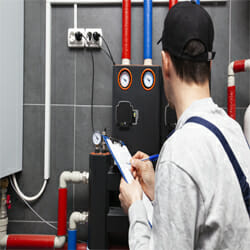
Regular Inspections and Servicing
Schedule annual maintenance checks with a professional plumber: A qualified plumber should inspect your hot water system at least once a year. A professional can thoroughly examine the system, identify potential issues, and address them before they become major problems. Regular inspections can help detect leaks, corrosion, or unusual noises that may indicate a problem with the system. Professional plumbers have the expertise to diagnose and resolve issues efficiently, keeping your hot water system in optimal condition.
Inspect for signs of leaks, corrosion, or unusual noises: As a homeowner, you can also perform routine visual inspections of your hot water system. Check for any signs of leaks around the tank or connections. Corrosion can indicate a deteriorating system, so keep an eye out for rust or other signs of corrosion on the tank or pipes. Unusual noises, such as popping, rumbling, or hissing sounds, may suggest sediment buildup or other internal problems within the system. If you notice any of these signs, it’s important to seek professional assistance promptly to address the issue.
Consider professional flushing of the tank: Over time, sediment and mineral deposits can accumulate inside the tank, reducing its efficiency and potentially shortening its lifespan. Flushing the tank helps remove these deposits and maintains the system’s performance. Consult the manufacturer’s guidelines or hire a professional plumber to ensure the proper flushing technique is followed. Flushing is typically recommended every 1-2 years, depending on the water quality and usage patterns.
Related Articles:
Temperature and Pressure Relief Valve (TPRV) Maintenance
Test the TPRV annually. The temperature and pressure relief valve (TPRV) is an essential safety component in hot water systems. It helps regulate the pressure inside the tank, preventing excessive pressure buildup. To ensure it is functioning correctly, you should test the TPRV annually. Simply lift the lever on the valve to allow a small amount of water to discharge. The valve is in good working condition if water flows freely and stops when you release the lever. If the valve fails to operate or water continues to flow after releasing the lever, it’s crucial to replace the TPRV immediately after every three years. To maintain the safety of your hot water system, it is recommended to replace the TPRV every three years. Over time, these valves may become worn or develop faults, compromising their effectiveness. Regular replacement ensures that the TPRV functions as intended, protecting against excessive pressure and potential system failure.
Anode Rod Replacement
Inspect the anode rod annually. Anode rods are sacrificial rods made of aluminium or magnesium that are designed to attract corrosive elements in the water, preventing them from attacking the tank. Regular inspection of the anode rod is essential to ensuring its effectiveness. Anode rods typically have a lifespan of 3 to 5 years, but this can vary based on water quality and usage. Check the anode rod annually and replace it if it is severely corroded. A deteriorated anode rod should be replaced promptly to prevent corrosion of the tank.
Importance of anode rod replacement: The anode rod plays a vital role in preserving the integrity of the hot water system. By sacrificing itself to corrosion, the anode rod prevents the tank from corroding. Failing to replace a worn-out anode rod can result in accelerated tank corrosion, reducing the lifespan of the system. Consult with a professional plumber to determine the appropriate type of anode rod and replacement interval for your specific needs.
Flushing the Tank
Regular flushing to remove sediment: As mentioned earlier, sediment and mineral buildup can affect the efficiency and lifespan of your hot water system. Flushing the tank helps remove these deposits, allowing the system to operate at optimal performance. Flushing also helps reduce the risk of clogs, uneven heating, and potential damage to internal components. Flushing intervals may vary depending on factors such as water hardness and usage patterns. Refer to the manufacturer’s guidelines or consult with a professional plumber to determine the ideal frequency for flushing your particular system.
Proper flushing techniques: Flushing the tank involves draining the water and removing the sediment and mineral buildup. The specific process may vary based on the type and model of your hot water system. It is advisable to seek professional assistance or refer to the manufacturer’s instructions to ensure that the flushing is done correctly. Professional plumbers have the knowledge and tools to perform the task efficiently and minimise the risk of damage to the system.
Water Softening
Install a water softener if needed: Water with high mineral content, often referred to as hard water, can lead to scale buildup in your hot water system. Scale deposits reduce the heating elements efficiency and may cause premature failure of the system. Installing a water softener can help mitigate these issues by removing or reducing the mineral content of the water. A water softener exchanges hard minerals (calcium and magnesium) with sodium ions, preventing scale formation. Consult with a professional plumber to determine if a water softener is necessary for your water supply and the appropriate model for your needs.
Professional guidance for water softener installation: Installing a water softener involves plumbing modifications and integration with your existing water supply. Seeking professional guidance ensures that the installation is performed correctly and in compliance with local plumbing codes. A professional plumber can also help you choose the right water softener for your specific requirements, considering factors such as water hardness, flow rate, and household size.
III. Signs of a Failing Hot Water System
Reduced Hot Water Supply
One of the clear signs of a failing hot water system is a noticeable reduction in the hot water supply. If you find that your hot water output has significantly decreased or if the system is unable to meet the demands of your household, it could indicate a problem with the hot water system. There are a few potential causes for this issue. One possibility is a buildup of sediment or mineral deposits inside the tank, which can reduce the capacity of the tank and restrict the flow of hot water. Another possibility is a malfunctioning heating element or a faulty thermostat, which can result in inadequate heating of the water. In either case, it is important to address this issue promptly to restore the functionality of your hot water system.
Rusty or Discolored Water
If you notice rusty or discoloured water coming from the hot water taps, it clearly indicates a problem with your hot water system. This issue is commonly caused by corrosion inside the tank. Over time, the interior lining of the tank can deteriorate, leading to rust formation. When rust particles mix with hot water, it discolours the water and can pose health concerns. Corrosion can occur due to various factors, such as water chemistry, poor maintenance, or the age of the system. If you observe rusty or discoloured water, it is essential to have your hot water system inspected and repaired or replaced, depending on the extent of the corrosion.
Also Read: Is Your Tap Water Brown?
Leaks and Water Damage
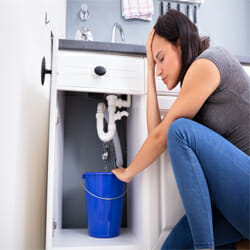
Strange Noises
Unusual sounds emanating from the hot water system can indicate underlying problems that require attention. If you hear popping, rumbling, or hissing sounds coming from the system, it may be a result of sediment buildup inside the tank. Over time, minerals and sediment settle at the bottom of the tank and can create noise when the heating element heats the water. These noises not only indicate that the system is not operating optimally but also suggest that there is a need for maintenance or flushing to remove the sediment. Ignoring these sounds can lead to reduced efficiency, increased energy consumption, and potentially even damage to the tank or other components of the hot water system.
IV. Replacement Options
When the time comes to replace your hot water system, it’s essential to consider various factors to ensure you choose the right unit that suits your needs and offers optimal energy efficiency. In this section, we will delve deeper into replacement options and explore key considerations to help you make an informed decision.
Considering Energy Efficiency
Energy-efficient Models: With increasing concerns about energy conservation and rising utility costs, it is prudent to select a hot water system that is energy efficient. Look for units with high Energy Factor (EF) ratings. The EF rating represents the efficiency of converting fuel to hot water; higher ratings indicate greater energy efficiency.
Tankless Water Heaters: Tankless water heaters, also known as on-demand water heaters, are a popular choice due to their energy efficiency. By flowing the water directly through the device, it eliminates the need for a storage tank. They eliminate standby energy losses associated with traditional storage tank systems by heating water only when needed.

Professional Installation: Importance of Professional Installation: When replacing your hot water system, it must be professionally installed. A skilled plumber will ensure that the unit is correctly connected to the plumbing system, follows local building codes, and operates safely and efficiently.
Proper Sizing: A professional installer will determine the appropriate size of the hot water system based on your household’s hot water demands. Undersized systems may struggle to meet your needs, while oversized units may lead to unnecessary energy waste. An expert will consider factors such as the number of occupants, peak hot water usage times, and the type of fixtures in your home to determine the right size.
Correct Ventilation: Certain hot water systems, such as gas-powered models, require proper ventilation to ensure safe operation. A professional installer will ensure that the ventilation system is correctly installed to prevent the buildup of harmful gases.
Compliance with Building Codes: Professional installers are well-versed in local building codes and regulations. They will ensure that your new hot water system meets all the necessary requirements, such as proper installation clearances, safety measures, and plumbing code compliance.
Conclusion
Understanding the lifespan of hot water systems and implementing proper maintenance practices are crucial for maximising their longevity and performance. By following the tips provided in this blog, homeowners can enjoy a reliable hot water supply while avoiding the inconvenience and expense of premature system failures. Remember, regular inspections, servicing, and addressing any issues promptly will go a long way in extending the lifespan of your hot water system, ensuring comfort and convenience for years to come.

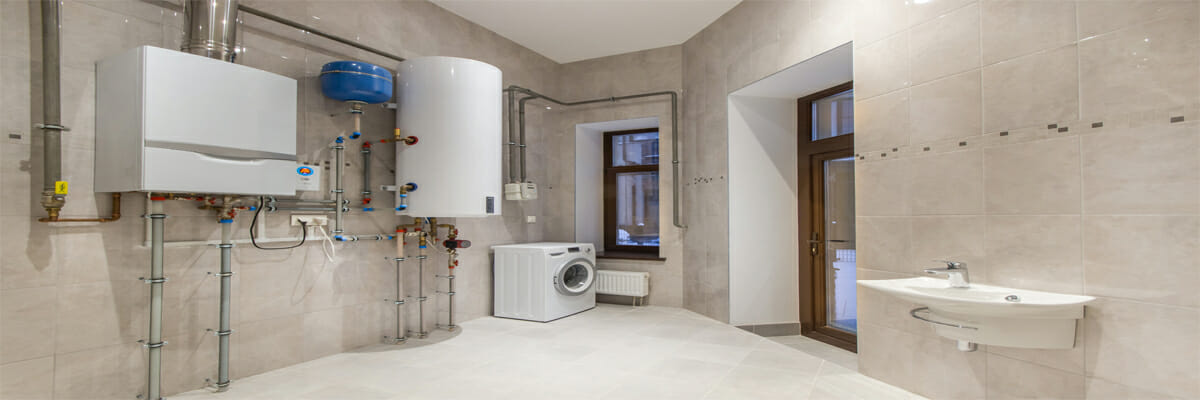
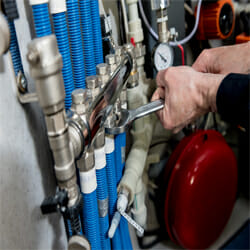
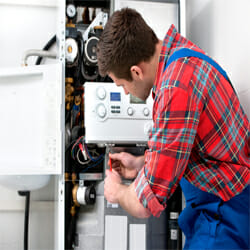
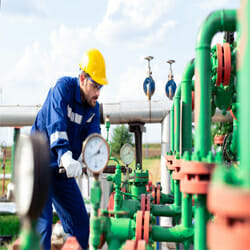
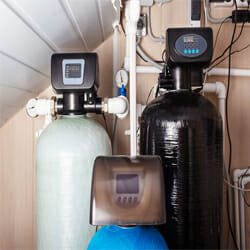
 Enquire
Enquire